Travel with me #99 : The Endangered Species of Qingling - The Crested ibis!
Dear Steemit friends :

China has a special list of endangered species which are considered it's national treasures. In a previous post, we had a look at two of these endangered species, the Giant Panda and the Golden Takin. If you missed that post, you can find it here.
Today, we'll be continuing our journey deep into the Qinling mountains and having a look at another one of China's most precious endangered animals, the Crested ibis.
This species of bird is known for it's large wingspan and and magnificent golden coloured underside wing. Before the crested ibis became endangered, they could be found in Japan, China, Korea, Taiwan and Russia. Throughout the twentieth century, the crested ibis continued to decline in population until at one point it was thought to be extinct. It was only until 1981 where the species was rediscovered in a village in the southern slopes of the Qinling mountains.
Today, the Shaanxi province has a growing population of crested ibis thanks to conservation efforts and considerable effort to protect their natural habitats. Breeding programs leading to the crested ibis being reintroduced into the wild has helped the population stabilise and even grow quite significantly.
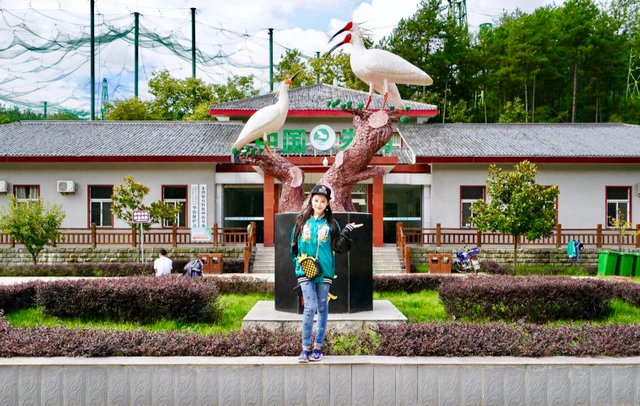
In China, the Crested ibis is widely regarded as an auspicious bird, affectionately referred to as the oriental gem. Since 1981, the population has grown from 7 to over 2000 and now occupy a fairly vast area of 100 km squared of the Qinling mountains.
I visited one of the nature reserves called Hanzhong responsible for managing the breeding program and eventual release of the Crested ibis to the wild. This part of China is largely unknown and thus has very few visitors. It was only these few years that tourist centers and hotels opened to allow a few number of tourists to come see these national treasures.
Aside from seeing some of the most treasured animals in China and indeed the world, it is impossible to visit this area and not be in total awe of the environment. It is as beautiful as it is natural, the villagers taking care of the surroundings making sure the environment is ripe for future generations to live here.
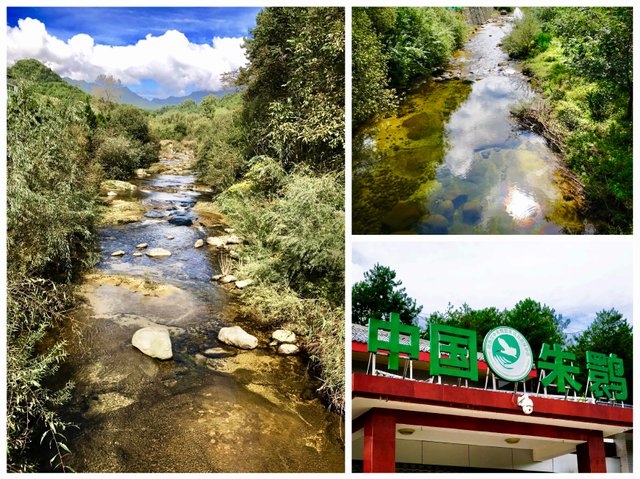
The nature reserve looks after both wild Crested ibis as well as ones in captivity. You can see the very large closed roof net cage created for the Crested ibis.
It is used to keep the young Crested ibis captive but also as a way to control and teach the Crested ibis in captivity, how to forage.
It turns out that the Crested ibis experienced severe population declines because of it's preference for foraging flooded rice fields instead of the the dry land farms. Significant research conducted after the rediscovery of the ibis has concluded that their dependency on wet farmland for foraging means they are sensitive to changes in agriculture.
Farmers in the local area are encouraged and even subsidised by the government to continue the practice of winter flooding of rice fields despite lower crop yields compared with dry land farming techniques. This is all for the sake of creating an environment conducive to thriving ibis.
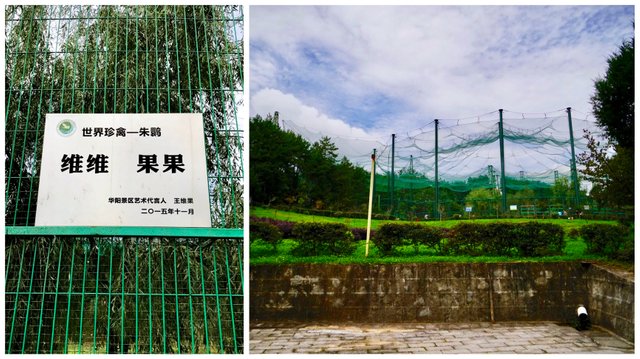
To my surprise, instead of seeing the Crested ibis right away, I was greeted by a flock of lamb and sheep! They hung around right against the fence and seemed to be extremely friendly with the visitors. We picked up some shards of long grass and fed them. They were happy to oblige!


Sitting on the railings quite far back are the Crested ibis. Some are seen foraging whilst others are perching on the wooden stand indifferent to the observers taking pictures of them and trying to get their attention.
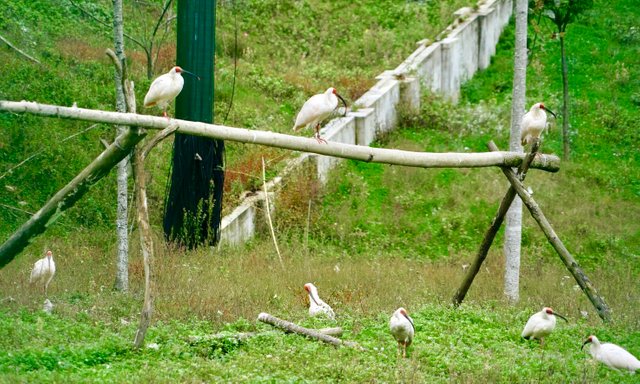
They are instantly recognisable because of their red face, look mouth, and beautiful golden wingspan. They are almost like a royal version of the eagle and vulture. Beautiful because of their contrasting colours of red and gold against plain white.
Most of the Crested ibis at the park were happily minding their own business. One friendly guy flew over to greet us and took this opportunity to show off his beautiful plumage and golden feathers.
Capturing a bird in focus whilst it flies around is a lot harder than it looks!

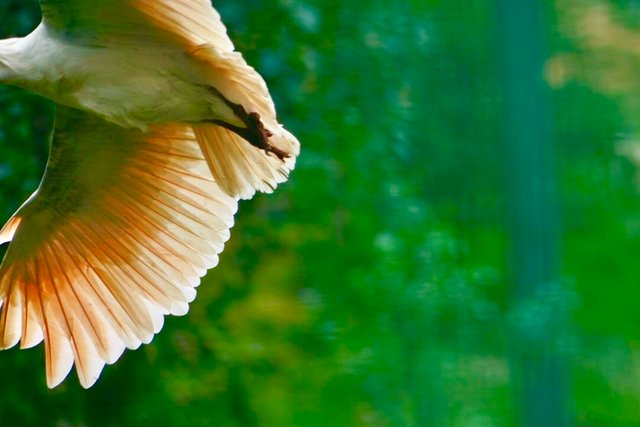
This fella was sitting perching on one of the cables outside the compound. I suspect it was born and raised inside the compound and was coming back to visit friends.
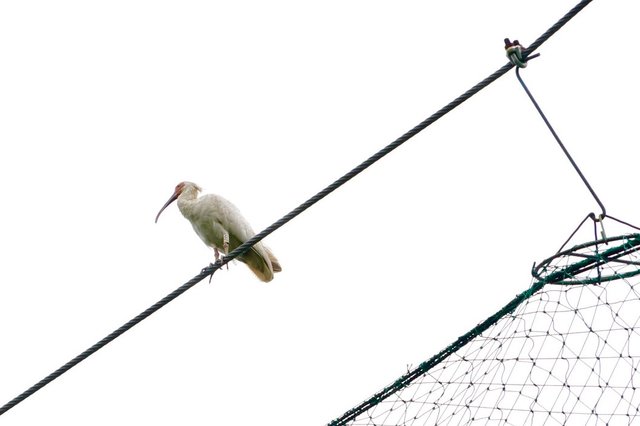
Qinling Hiking Trail
The Qinling mountains are often considered the central park of China. It is a special region which divides the north and south of China, to the South we have Sichuan and Chongqing, to the north, Shaanxi province.
The climatology of the area is quite unique, in-fact, it is said that the Qinling mountains display the qualities of all four seasons throughout the year.
People who live here have depended on natures offerings for thousands of years. They understand the importance of preserving the environment so that generation after generation of people can continue to live in harmony with nature, simultaneously cultivating it and also living off it.
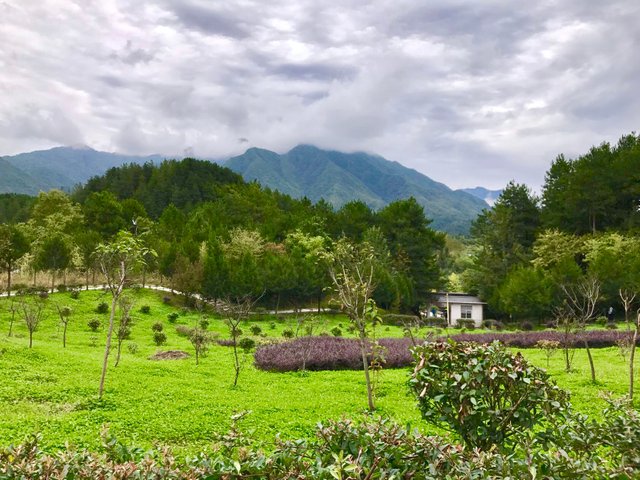
Our trail began a few kilometers away from the village we stayed at. The tour guide who took us around the nature reserve for the crested ibis told us that the hike was well worth it and would make for a good stroll back to the village.
Thinking it was a good opportunity to work up an appetite, we obliged.
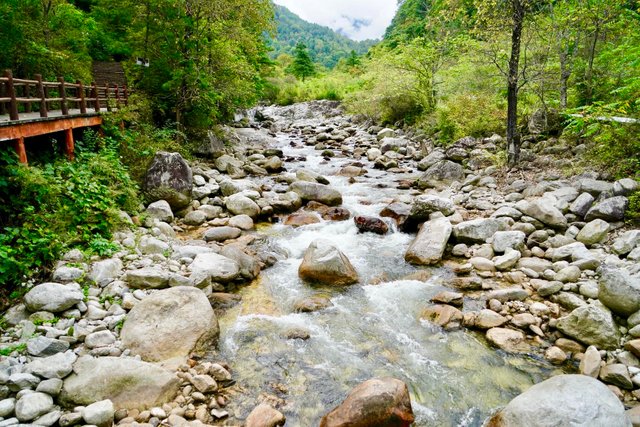
The trail followed a stream which flowed from the highest mountain of the Hanzhong area of Qinling. A path was built to make it easier and safer for people to traverse through the otherwise rocky and winding valley.
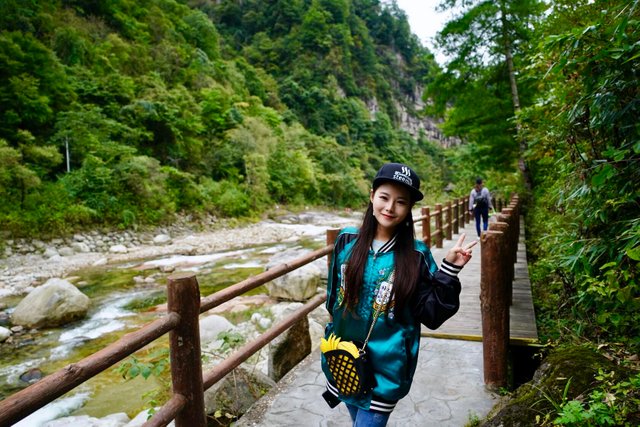
At various points of the trail, the rock formations would go from being football size to the size of houses and everything in between.

The trail even made us hike up and down the side of the mountains, giving us some elevated views of the incredible natural scenery.
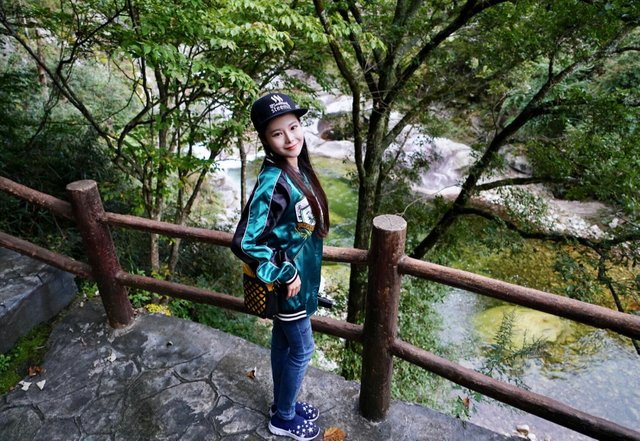
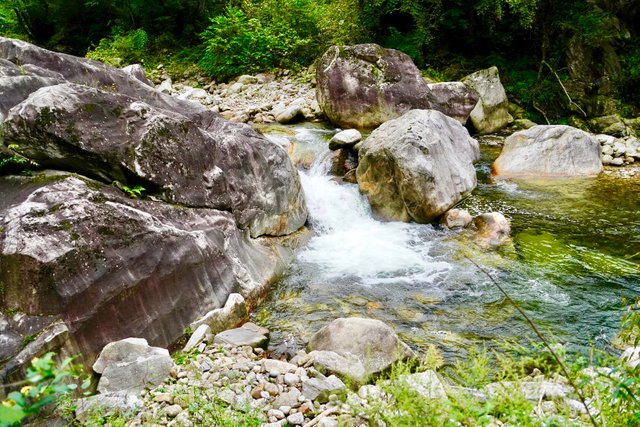
Along the trail, some of the locals can be seen reaching into the lush vegetation, picking all sorts of berries, fruits and vegetables to take home, prepare and cook.
I managed to pick some for myself, even though I have no idea what they are or how to eat them..
There are also many small creatures which live in this natural habitat. It's quite rare to ever see these things in the big cities.

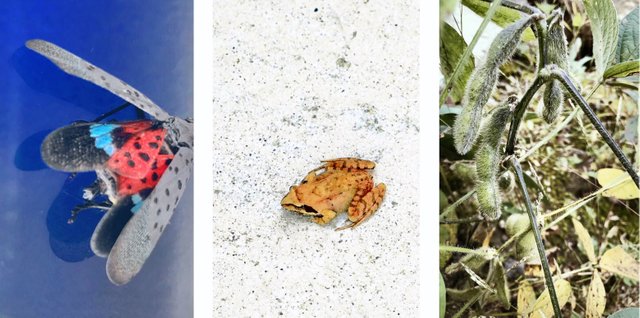
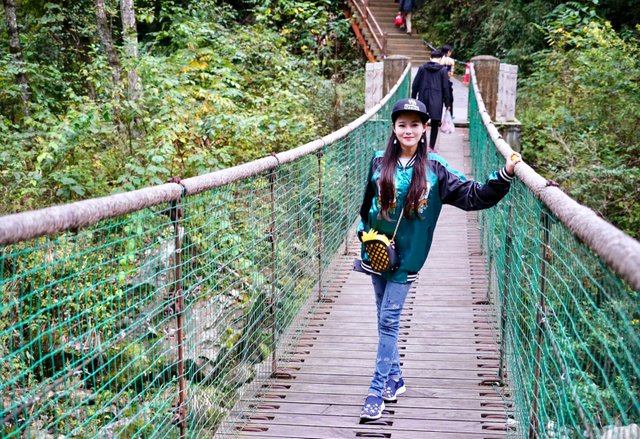
Check out the video!
And that concludes our expedition to the Qinling mountains and visit to the Hanzhong Crested ibis nature reserve. It is incredible to think that less than fourty years ago, the Crested ibis had reached the edge of extinction and found their last refuge deep in these mountains.
If it wasn't for the continued care and conservation efforts, the crested ibis may have died out by the end of the last century, and what a shame that would have been.
Don't forget to vote for the post if you liked it, follow for more of my travel logs, and leave a comment to let me know what you think!
在地大物博,资源丰富的祖国,我们会遇见很多大自然赐予我们的珍奇异宝,说起中国的四大国宝动物,大家是否对我们早前探访的卖萌活宝熊猫和独特优雅的羚牛记忆犹新呢?今天我即将要带大家去看第三种国宝,你们可能对它的名字熟悉又陌生,它被人们亲切地称呼为“吉祥之鸟、东方宝石”,名作家呼吁保护它的文章,还被收入小学生课本里,它优美动人的姿态让国内舞台创作的顶级艺术家们集结在一起,创作出著名芭蕾舞剧,感动了万千观众,很荣幸我也去到了现场观看舞剧,感触颇深。所以,你们猜出今天的主角了吗?今天要隆重登场的是自身极具智慧和魅力的国宝,朱鹮。
如果你对朱鹮一无所知,你可能很难想象它是一种什么样的动物,今天我们就去到朱鹮的家乡,走进秦岭的深山中,一起去探访这群神秘而美丽的天空精灵吧。朱鹮是一种珍稀鸟类,也是国家一级保护动物,全身有着洁白无瑕的羽毛,它们的头和脚部略带淡淡的粉红色,光看它们的照片,我就觉得它们美到无法想象。朱鹮喜欢生活在高大的乔木顶端,并喜欢在水田,溪流里觅食小鱼,蟹和蛙。它们曾经居住过日本,朝鲜和俄罗斯,可惜环境的剧烈恶化让这三个国家被宣告灭绝。到了20世纪80年代,在陕西省南部的汉中市发现了也许是全世界仅有的7只野生朱鹮,经过专家们耐心的照料和培育,如今生活在中国的朱鹮数量达到2000多只,真是一个喜讯呢。如今中国是世界上唯一拥有野生朱鹮分布的国家。
走入朱鹮生活的家园,就仿佛走进了童话世界,山清水秀,蓝天白云的画面,油画般的既视感呈现在眼前,让我快要开始怀疑自己的眼睛,眼前这副景象是真实的吗?还好那流水的清脆声响和风吹草动的斯斯声为我揭开了谜底,这里就是朱鹮天堂一般的纯净家园。这是我第一次看到真正的朱鹮,以前在课文里学到的朱鹮,和芭蕾舞剧里朱鹮那唯美的姿态,让我深深的爱上它们的自然的美和自由的天性。曾经观看过的芭蕾舞剧《朱鹮》,还在国内外完成了百余场演出,并收获了"中国天鹅湖"的美誉。舞剧里的它们就像一群从天而降的天使,美好而稀有,并教会了人们如何去爱护和感恩地球这个大家园。看过了图片里和舞台上的朱鹮,终于有机会看到现实中的国宝朱鹮,我心中充满了无限的期待,兴奋和喜悦,想象着朱鹮又要以怎样超凡脱俗的美,让人们为之动容呢。
走进朱鹮园,会看到很大的绿色网,里面就是世界珍禽朱鹮。我迫不及待的想看到它们,所以情不自禁的加快了脚步,走到鸟笼边,还没看到朱鹮,就遇见一群讨喜的山羊,它们看见我走过来,就友好的上前打招呼,我从地上拔下一些草喂它们,它们乖乖的用嘴接过去,慢条斯理的咀嚼着。它们各自有着不同的颜色,但是每一只都很可爱,我想这羊群大概是为了与朱鹮作伴的吧,眼前这一只只优雅站在木杆上的精灵就是朱鹮了,远望它们,好像是一颗红宝石镶嵌在了珍珠里。我激动的不停用手机和相机拍摄,只可惜观看的距离有些远,正当我在心里嘀咕的时候,一只朱鹮突然起身一跃,飞向天空,然后朝我的镜头飞过来,让我有幸拍到了非常清晰的朱鹮飞翔的姿态,它羽毛颜色的鲜亮显现,尾巴和翅膀的底端在阳光下透着绚丽的渐变橘红色,整个画面美的让人心碎。
因为这惊艳的场面发生的太突然,周围的游客都发出了赞叹的声音,我也在感慨,是怎样的运气,让我有幸看见朱鹮飞翔的英姿。紧接着这只朱鹮绕着笼子飞翔半圈,又停在了刚才的位置,整个过程好像是在特意为我们表演一样。当我抬头一看,竟然发现一只野生的朱鹮停靠在笼子外面的线上,它是过来找朋友的吧,真有趣呢。离开了朱鹮的栖息地,我决定去看看秦岭的自然风光,来到了被称为“中国中央公园”的秦岭南麓,怎能舍得错过这“一山有四季,十里不同天”的奇观呢。绿色,生态,健康,自然这是我对秦岭山水的感受,同时也深刻意识到,守着这块宝地的人们,真的应该好好保护和珍视同样生活在这伊甸园般仙境的国宝们,它们是上帝创造给人类的礼物,也是大自然不可缺少的一部分。今天的探访朱鹮之旅就要告于段落了,希望大家享受今天的旅程,之后还有更多有趣的故事要分享给大家。
Awesome picture of the bird's butt.

Explanation for high upvote : https://steemit.com/steem/@transisto/temporarily-pausing-my-anti-abuse-efforts-while-sbd-is-off-the-chart
taking notes on how to take winning bird photographs

haha! come to think of it, it is pretty awesome now that you mention it.. all in focus too!
Amazing post...loved it.... a true animals lover
thanks for sharing this with us.
As amazing as ever! Your travels are becoming legendary!
@sweetsssj - Wow - I just love this post! It has two things very dear to me - Wildlife and you!! LOL
I never imagined I would get to see a post with the crested ibis in it on Steemit. Hats off to you for documenting the efforts being taken by the Hanzong nature reserve to conserve the ENDANGERED crested ibis population.
The environment of the nature preserve is so cool with all the rock trails, water bodies and greenery. I wish I was there with you. I am sure that I will visit the preserve one day. I will put it on my 'travel destinations' list.
I really congratulate you on such a nice flight shot of the crested ibis. Since I photograph wildlife regularly, I know how difficult it is to focus and get a flying bird photograph. Well done!
Thank you for making my day wonderful with this blog. Now I can say I have seen 3 species of ibis. Black ibis and red headed ibis in real (in India and Africa) and crested ibis on Steemit on your blog. Cool. Upvoted full.
I have blogged about my favorite place, the view from it and what it means in life in Window to the world. I request you to take a look and let me know your comments as well as what is your view from your favorite window. Thanks for all your support and encouragement dear friend.
Regards,

@vm2904
Thank you for sharing this wonderful post with us......I m really happy reading it
I love the Steemit clothing.
Really? That's great! I'm kind of sad the logo has changed.. and now i'm not sure whether I can use it to make new clothes or not.
Actually, Steem logo is not changed. Just Steemit designed a new logo. Because many users using other UIs for example busy, cnsteem, I believe the readers would like to see you use Steem logo instead of Steemit logo.
i like the old much better than the new. And You have a nice style of writing !
The old one is much better. They should of made it a contest to decide if they should release a new one. New is not always better.
Me encantan las fotografías de tus viajes @sweetsssj, te felicito desde Venezuela
nice
vm2904,i'm so impressed that you know so much about these already. You definitely are a wildlife lover! Now it is my turn to visit the ibis you mentioned in India and Africa, that would make a holy trio!
I'll check out your blog soon my friend, thanks for visiting mine! :)
amazing your post @sweetsssj
@sweetsssj - Yes you must visit and see the black and red ibis. That would be wonderful. Do plan a trip to India or to South Africa. I will be happy to assist in any way I can.
such a beautiful place and wonderful article. You always inspire me sista. I am a new comer in steemit, please teach me and guide me. thanks before :D
What a musician .. amid the beautiful nature and her animals really are wonderful
whenever I see the title of all your articles It starts with Travel with ME,, I consider it as an invitation to someone to travel with you,, Imagine all your followers accept the invitation,,, I accepted a long time ago and many do the same thing as me,,, So prepare yourself to a trip of thousands of people.
haha well it's meant to be figuratively speaking, inviting you to enjoy the experiences that I share through here!
Who supports me with a vote and I follow it
Hy guys iam new here and i am lost .. please guide me thank you
your post is very cheerful and friendly
Hey, great Post and incredible Pics! Maybe you want to travel with me too through Austria! U got my follow :)
Amazing post. I really admire you a lot :)
Amazing post. Verry well @sweetsssj
Who supports me with a vote and I follow it
Yes thing and you also have wonderful leaflets I liked your style
I've worked for you to follow up
@javybar ❤❤
You are right. @sweetssj I appreciate your photography. amazing photography, its look really nice.
"If it wasn't for the continued care and conservation efforts, the crested ibis may have died out by the end of the last century, and what a shame that would have been."
That could stimulate some deep philosophical thoughts!
Is it a shame that dinosaurs, and earlier, gigantic, versions of some mammals died out? I would have to think about that. And you know how I hate thinking. LOL.
In some sense, I feel as though a lot of the endangered species had it coming for them. Even with little direct human involvement, many just simply cannot acclimate to ever changing environments, arguably also our fault. On the other hand, species like the Giant Panda just don't seem to be innate survivors, it is a wonder that they are still around today what with tiny time frames for mating and conception, and then outrageous dietary requirements on top of that.
Even so, the thought of a species becoming instinct upsets me some what. I would love to see Dinosaurs today, but then I'm not sure the environments of today would be suited to them and their size. I wouldn't want for dinosaurs to be like the ones in Jurassic park where they are essentially prisoners in a far away land because they couldn't thrive in other parts of the earth..
I guess there is a time and place for everything.
If the Earth is evolving, and I think it is, I would hazard the guess that the makeup of the biosphere must evolve to meet the new conditions/needs. It appears that the thin biological "skin" of the Earth plays a role in transforming energies coming in from other cosmic concentrations, especially the Sun.
The Sun goes through massive changes (if compared to our little planet) and so our planet must shift and transform to adjust to the change in energy from the Sun (which is also evolving). One of the ways is by adjusting the qualities, quantities and balance of life on its surface.
To think that humanity is "responsible" for global warming gives far too much importance to its actual circumstances and place in the grand scheme of things. Humanity is quite as passive as the rest of the biosphere in this regard, as are most individuals within humanity.
Some individuals within humanity can consciously participate in producing and transforming the energies required of them by Great Nature and then produce a little more for their own individual evolution. But that is not the fate of humanity as a whole which simply passively and unconsciously serves Great Nature.
Darn, @sweetsssj, you made me go and think. I have to be careful around you :-)
nice post, thanks for sharing!
Nice post, i love it...
Hihihi i want make your smile,,, your story is so nice sweet
@sweetsssj
wow.. love it haha!
Hihihi thanks u
@sweetsssj
WoW! nice one. @sweetsssj is very pretty. I have started my travel blog also same as her so you can have look at my visit at Falkland Islands. Very interesting places and food and Model's photoshoot moments you will enjoy.
Oh. Cool photo. I love it.
@sweetsssj You always give some beautiful.😍
You are right. @sweetssj always give some beautiful travel post. In this post i like the first photo. She looks beautiful. Nice article about Crested ibis. Which is endangered spacies. I like the picture of this species. @sweetssj Keep sharing . i waite for your next travel post.
i'm glad we both take a fancy to this species, aren't they simply magnificent??
There is so much beauty in nature and wildlife.The crested ibis looks so elegant. The entire environment looks so attractive and serene.
You are so right about that. This is one side of China that few people get to see. Even the Chinese themselves know very little about this area. It will take some maturing of society before people start to understand the importance of protecting the environment and wildlife.